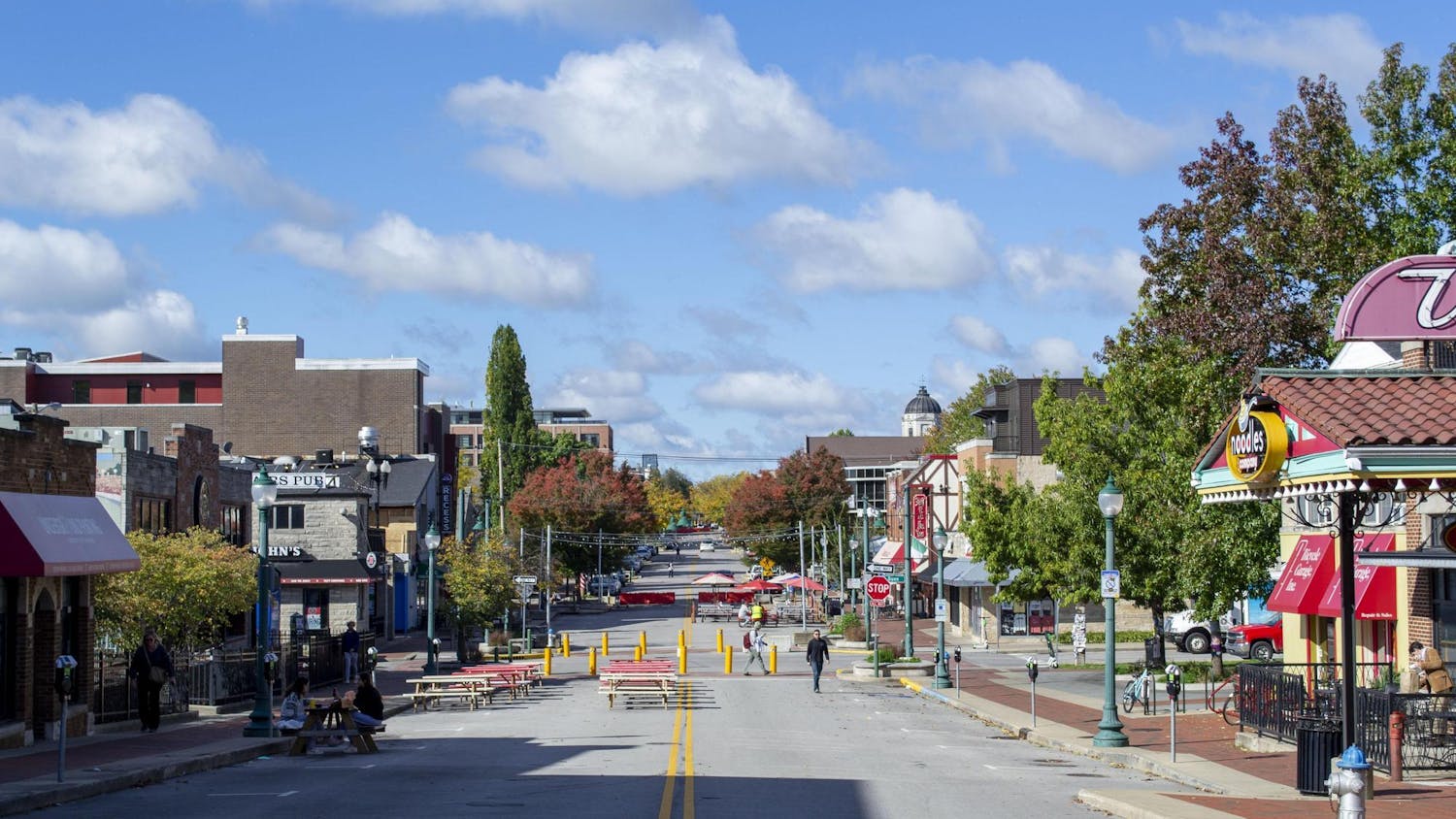Djene Bajalan, a history professor at Missouri State University, set out Wednesday to consider misconceptions associated with the question of Kurdish aspirations for statehood from the Ottoman Empire to the present.
Bajalan's talk at the Global and International Studies Building focused primarily on current implications of the 'Kurdish Question.'
The presentation, titled "The Kurdish Question beyond Statehood: From Ottomanism to Democratic Confederalism,” proved simply too large to discuss in only an hour, Bajalan said.
The Kurds are a people who were displaced after World War I when the boundaries of Turkey were determined. This population never obtained its own physical state, despite having a prominent cultural identity.
The question of what to do with and about the Kurds is one that has ultimately transcended history — Kurds in Turkey, Iran, Iraq and Syria are still fighting in various ways for freedom.
These nations have consistently fought to ensure that the Kurds remain stateless.
Ambassador Feisal Istrabadi, founding director of the Center for the Study of the Middle East who hosted Bajalan, said it's a goal of his program to introduce academic perspectives to current events.
“This issue in particular has been in the newspaper for quite some time, but what has been absent from the discourse has been this sort of theoretical, academic analysis of these events,” he said.
He praised Bajalan for tying current topical events into his analysis and not sitting in what he called the ivory tower of academia.
“The Kurdish question is seen largely as a question of security,” Bajalan said. “It’s basically the idea that Kurdish political activism, what we might call in America ‘Kurdish identity politics,’ inevitably tends toward nationalism.”
Bajalan described nationalism primarily as the unrelenting quest to achieve a physical nation-state where the Kurdish people could settle.
He explained Turkey is the nation most hostile toward the presence of the Kurds, and the idea that Kurds are inherently nationalistic is what drives that hostility.
This, however, is far too simple of an explanation, Bajalan said.
“Humans are lazy thinkers,” he said. “Setting it as this easy binary of ‘Kurds want a state and the people who rule the Kurds do not want them to have one’ is easy.”
His contention was that not all Kurds want a nation-state, and some are actually opposed to the idea.
The Kurdistan Workers’ Party (PKK) headed by Abdullah Öcalan initially embraced the idea of a pan-Kurdish state combining all Kurds across the Middle East but eventually took a sharp turn in ideology.
The PKK now supports a libertarian socialist political system known as democratic confederalism that rejects the nation-state. This ideology was theorized by Öcalan.
“When we look at these developments, some people see these ideologies as something new, something modern, something exciting,” Bajalan said. “My point is the idea that the rejection of the nation-state as a solution to the Kurdish question is not new.”
Bajalan took special care to identify why this distinction should be important to academics.
“I think there’s a perhaps more interesting point here: if we reject the idea that Kurdish political activism is the same as Kurdish nationalism in every case, we can develop more interesting research questions,” he said. “Specifically, how and why have kinds of different moments in history mobilized their identity in different ways?”
This distinction could even influence future policy if observed by governmental powers.
“Perhaps on a policy level we can counter the stereotypes that exist among state elites that any form of national activism is inevitably going to lead toward conflict,” Bajalan said.




